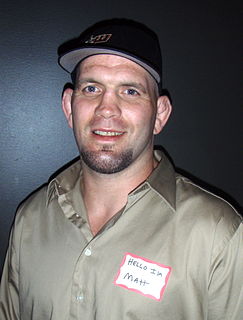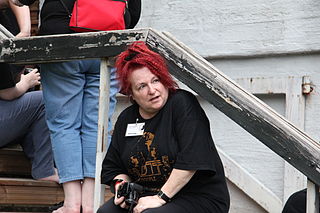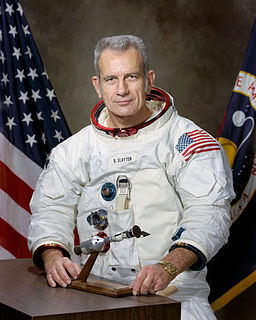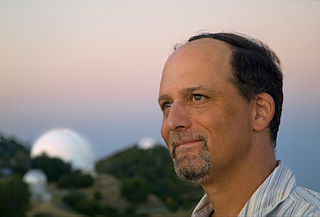Top 1200 Solar System Quotes & Sayings - Page 5
Explore popular Solar System quotes.
Last updated on April 22, 2025.
While civilization is more than a high material living standard, it is nevertheless based on material abundance. It does not thrive on abject poverty or in an atmosphere of resignation and hopelessness. Therefore the end objectives of solar system exploration are social objectives in the sense that they relate to, or are dictated by, present and future human needs.
'Easter' is a movable event, calculated by the relative positions of sun and moon, an impossible way of fixing year by year the anniversary of a historical event, but a very natural and indeed inevitable way of calculating a solar festival. These changing dates do not point to the history of a man, but to the hero of a solar myth.
I am much occupied with the investigation of the physical causes [of motions in the Solar System]. My aim in this is to show that the celestial machine is to be likened not to a divine organism but rather to a clockwork ... insofar as nearly all the manifold movements are carried out by means of a single, quite simple magnetic force. This physical conception is to be presented through calculation and geometry.
There's no doubt that the search for planets is motivated by the search for life. Humans are interested in whether or not life evolves on other planets. We'd especially like to find communicating, technological life, and we look around our own solar system, and we see that of all the planets, there's only one that's inhabited.
A flower is a miracle, but it does not have the sight or speech to describe us. And our own ability is no greater than that flower when we try to describe God. His infinity covers not only one planet, but the entire solar system and 100 billion suns. That doesn't mean he is limited in his ability to be part of you.
The universe is an asymmetrical entity. I am inclined to believe that life as it is manifested to us must be a function of the asymmetry of the universe or of the consequence of this fact. The universe is asymmetrical; for if one placed the entire set of bodies that compose the solar system, each moving in its own way, before a mirror, the image shown would not be superimposable on the reality.
I've been thinking a lot about space. It was one of those slow-motion realisations how little we are, how far we are from everything else in our solar system. This idea of distance started kind of haunting me. How do you go forth and accomplish things but not end up leaving everything you started out with in the dust?
It changes your perspective to be able to look out the window and see the planet. One of the thoughts that I had when I first got up here was, 'We really do live on a planet, and we are in a solar system, and we are flying through space right now.' I mean, this is something that you know, obviously, but to see the planet - it's amazing.
The Fuse is a solar energy station in orbit 22,000 miles above the earth. But it's more than just a big solar panel array. The Fuse is also home to Midway City, a technically illegal settlement that grew out of a bunch of engineers who decided they'd rather make a new life in space than return home to earth.
The stars associated with the solar system, such as the planets and asteroids (and it should be remembered that the term star in Biblical usage applies to any heavenly body other than the sun and moon) would be particularly likely to be involved, in the view of the heavy concentration of angels, both bad and evil, around the planet Earth.
I don't think Brian Cox does 'The Wonders of the Solar System' because he believes the world would be a better place if people understood about the rings of Saturn; I just think he finds physics extremely interesting. It brings him joy, and he wants to spread the love. I feel the same about economics.
The close relationships between the abrupt ups and downs of solar activity and of temperature that I have identified occur locally in coastal Greenland; regionally in the Arctic Pacific and north Atlantic; and hemispherically for the whole circum-Arctic, suggesting that changes in solar activity drive Arctic and perhaps even global climate.
The Moon is a ball of left-over debris from a cosmic collision that took place more than four billion years ago. A Mars-sized asteroid - one of the countless planetesimals that were frantically churning our solar system into existence - hit the infant Earth, bequeathing it a very large natural satellite.
We have one planet in our solar system that's habitable, and that's the Earth, and space travel can transform things back here for the better. First of all, by just having people go to space and look back on this fragile planet we live on. People have come back transformed and have done fantastic things.
I do not expect NASA to go out and build settlements and colonies. I do not expect them to give SpaceX all the money needed to colonize Mars. I do not expect them to realize the future of humanity is contingent on harvesting the wealth of the solar system overnight and suddenly subsidize my asteroid mining project.
I've got no advice. You guys know where you are and what will work. Just know that there are people all over the place working on this and that there's a great deal of solidarity around the world and we should try to build this big, sprawling movement that looks like the kind of energy system that we want - building lots of solar panels on lots of rooftops that are all interconnected.
Our neighborhood - this solar system, the cosmos, actually - is so much more vast and amazing than the paltry headlines, insanity, and politics crammed at us daily as so-called news. The beauty of the hood and discoveries that await us are deserving of our attention and mandatory to our survival as a species.
Solar makes electricity expensive for two inherently physical reasons. Sunlight is dilute, requiring 10 to 15 times as much materials and mining, and up to 5,000 times more land, than non-renewables. And sunlight is unreliable, which reduces the value of solar as it becomes a larger part of energy supplies.
The good news is that we've seen in recent years significant reductions in the cost of solar panels and wind production. We know how significant an impact we can have by moving towards energy efficiency and transforming our transportation system. So we know what has to be done. We have to develop the political will to do it, and, as president, this would be an issue of huge concern to me.
The cosmic game changed forever in 1992. Before then, logic told us that there had to be other planets besides the nine (if you still count poor Pluto) in our solar system, but until that year, when two astronomers detected faint, telltale radio signals in the constellation Virgo, we had no hard evidence of their existence.
I wanted to visit the Capitol of our country, the center of our great civilization that stands like the sun in the solar system, sendin' out beams of power and wisdom and law and order, and justice and injustice, and money and oratory, and talk and talk, and wind and everything, to the uttermost points of our vast possessions, and from them clear to the ends of the earth.
The feelings, myths and prejudices about the Negro American which now seem so valid and real to some of our white contemporaries will take their place on the shelf along with the belief in witches and the notion that the earth is the center of the solar system. Nobody knows as yet whether the future [of the race situation] is hopeless. All we know is that it can be made hopeless, if enough people choose to consider it so.
This is written in the elder days as the Earth rides close to the rim of eternity, edging nearer to the dying Sun, into which her two inner companions of the solar system have already plunged to a fiery death. The Twilight of the Gods is history; and our planet drifts on and on into that oblivion from which nothing escapes, to which time itself may be dedicated in the final cosmic reckoning.
Hydroelectric dams remain the way many poor countries gain access to reliable electricity, and both solar and wind might be worthwhile in some circumstances. But there is nothing in either their history or their physical attributes that suggests solar and wind in particular could or should be the centerpiece of efforts to deal with climate change.
If you have a look a few years back down the line then you will find that the previous government had made a big announcement related to the solar mission but nothing was implemented at the ground level. But after the Paris agreement, PM Modi took its leadership in his hand which resulted into International Solar Alliance.
If our solar system is not unusual, then there are so many planets in the universe that, for example, they outnumber the sum of all sounds and words ever uttered by every human who has ever lived. To declare that Earth must be the only planet with life in the universe would be inexcusably bigheaded of us.
If you were to stand on an asteroid in the main belt of asteroids between Mars and Jupiter in our solar system, you might be able to see one or two asteroids in the sky, but they would be very far away and very, very small. So you wouldn't have this 'dodging through tons of rocks' business you get in the movies.
I feel that I'm in on the ground floor of something that human beings will be concentrating on for the next 1,000 years-if we don't destroy ourselves in the meantime. It's possible that 50 years from now we're going to end up out of this solar system, batting around the universe, at least within our galaxy, investigating other stars and other systems.
Ecology also teaches that all life on earth can be viewed as a competition among species for the solar energy captured by green plants and stored in the form of complex carbon molecules. A food chain is a system for passing those calories on to species that lack the pant's unique ability to synthesize them from sunlight.
We really just didn't realize the diversity of planetary types in our solar system. Pluto looked like a misfit because it was the only one we saw. And just as a Chihuahua is still a dog, these ice dwarfs are still planetary bodies. They're large enough to make themselves round by self gravity, and they surely pass the test of planethood.
The system of fathers of the world church, the clergy system of the state church, and the pastoral system of the independent churches are all the same in nature. They are all Nicolaitans. In the Bible there are only brothers. There is the gift of a pastor, but no system of pastors. The pastoral system is man's tradition. If the children of God are not willing to return to the position of that in the beginning, no matter what they do, it will not be right.
In reality, Republicans have long been at war with clean energy. They have ridiculed investments in solar and wind power, bashed energy-efficiency standards, attacked state moves to promote renewable energy and championed laws that would enshrine taxpayer subsidies for fossil fuels while stripping them from wind and solar.
In the next century or two, we humans will have planet-finder telescopes that span our solar system with mirrors strewn from here to Jupiter, giving us enormous angular resolution so we can do the kind of science that a self-respecting advanced civilization ought to be doing. We should someday be imaging the continents on other planets. We can't do that yet, but aliens can do that already, so they know we are here.
I've had experiences in my life that leave no doubt in my mind about the fact that God exists. I'm quite willing to debate people who don't think so because I want them to explain to me how did our solar system get so organized and how is the universe so complex and yet well-organized that we can predict 70 years hence when a comet is coming?
We still don't know for sure what the trigger was, but since we've discovered meteorites with supernova dust, we do know that a violent explosion rocked our cosmic neighborhood at the time of our birth, and it's quite possible that without it, our stable, stately solar system would never exist at all.
In comparison to the U.S. health care system, the German system is clearly better, because the German health care system works for everyone who needs care, ... costs little money, and it's not a system about which you have to worry all the time. I think that for us the risk is that the private system undermines the solidarity principle. If that is fixed and we concentrate a little bit on better competition and more research, I think the German health care system is a nice third way between a for-profit system on the one hand and, let's say, a single-payer system on the other hand.
Discovering that our solar system has many more planets than we ever expected, and that most of them are ice dwarfs rather than like Earth and the other rocky terrestrials, is just another step in the revolution in viewpoint that removed the Earth from the center of the physical universe and makes Earth all the more special.





















































